Abstract
A 12-year medical informatics project is described whose goal was to create a distributable computer-based service to support the identification of hereditary cancer patterns and recommend concomitant protocols of patient care surveillance. Key elements of the successful implementation strategy are described as the service has been successfully utilized at more than a dozen other cancer centers. Multi-year clinical results are presented from the implementation of this service.
Full text
PDF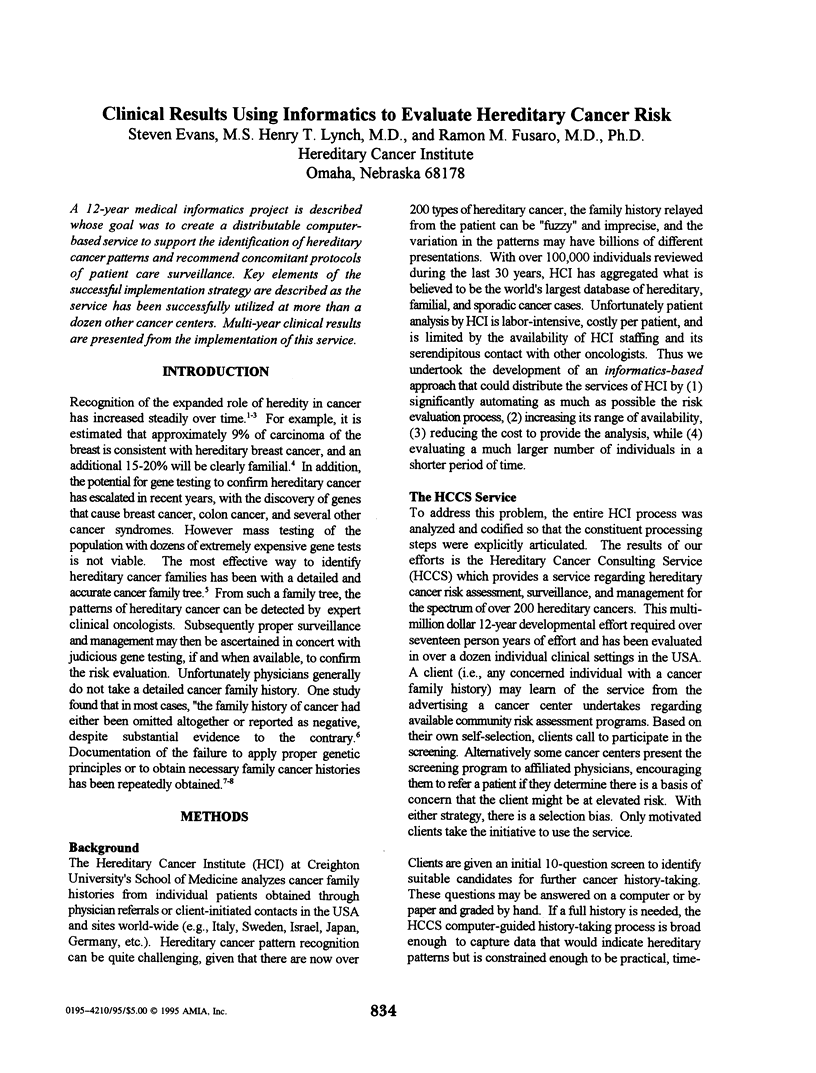
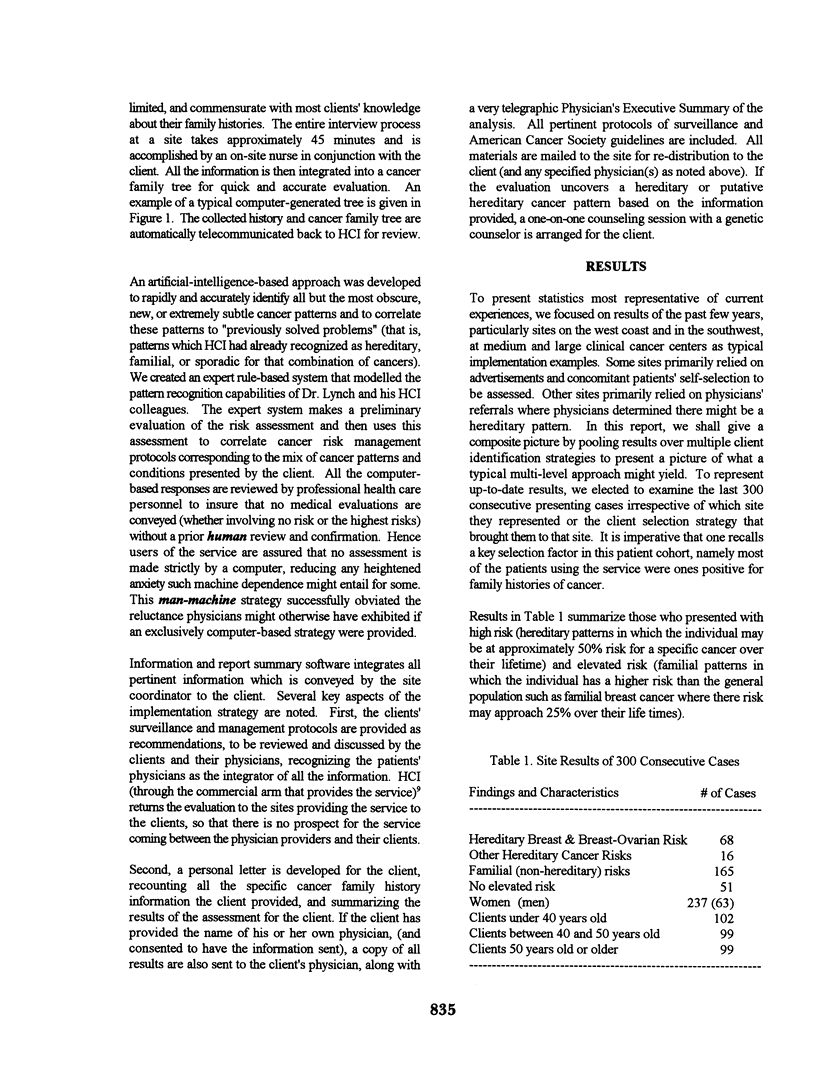
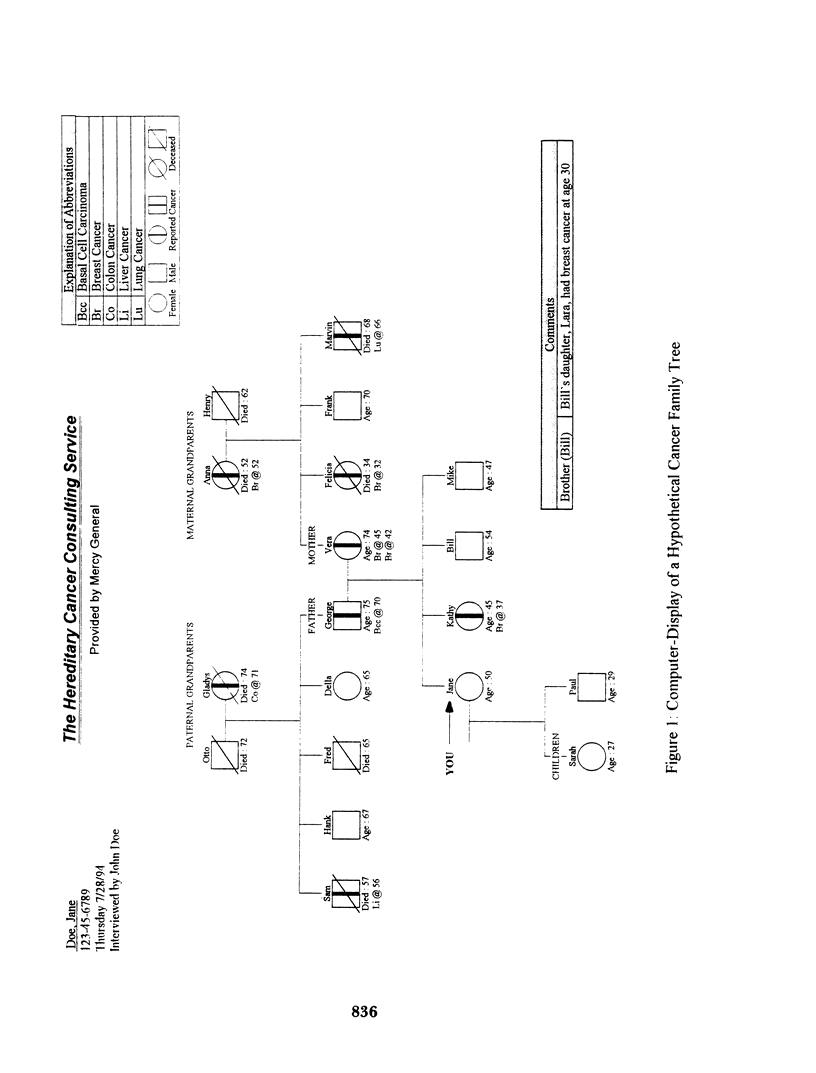
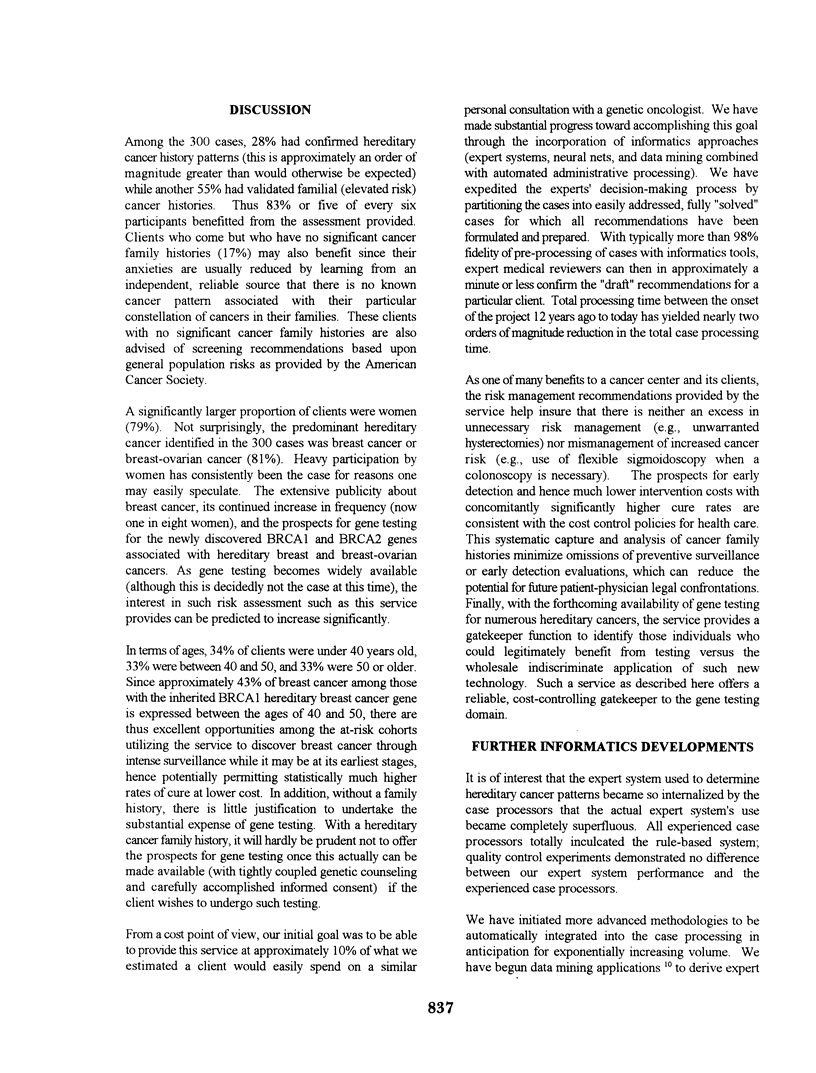
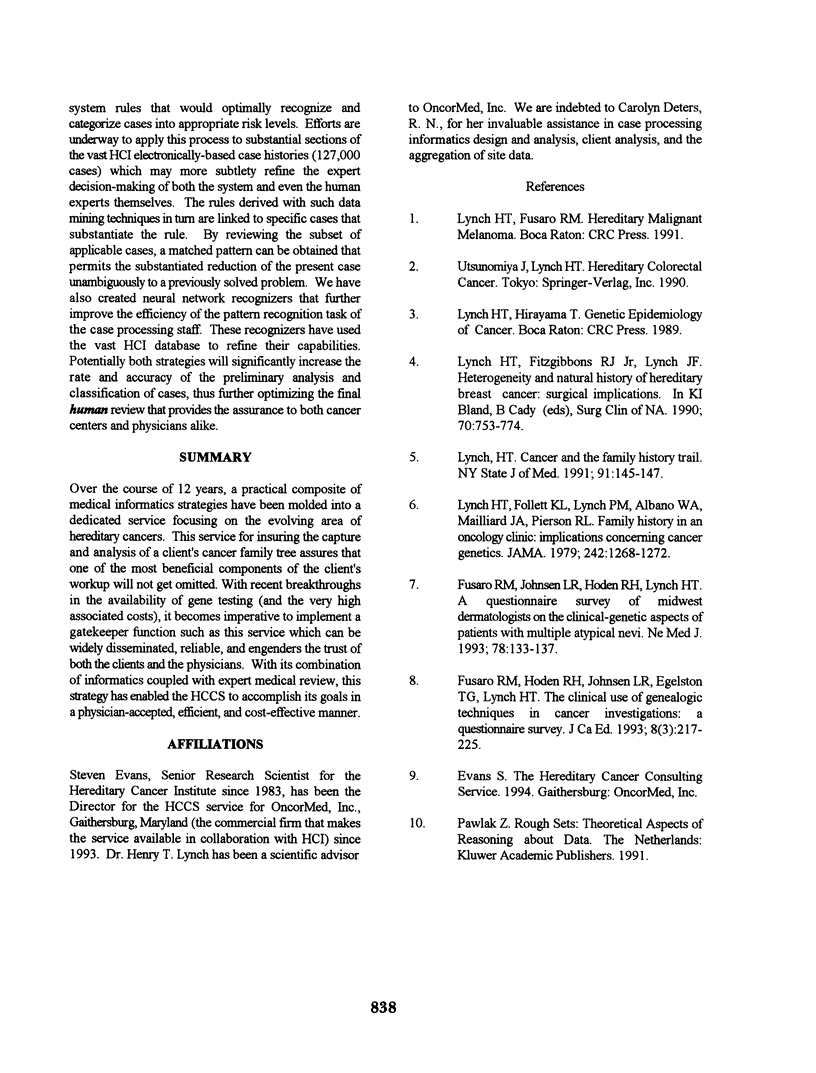
Selected References
These references are in PubMed. This may not be the complete list of references from this article.
- Fusaro R. M., Hoden R. H., Johnsen L. R., Egelston T. G., Lynch H. T. The clinical use of genealogical techniques in cancer investigations: a questionnaire survey. J Cancer Educ. 1993 Fall;8(3):217–225. doi: 10.1080/08858199309528232. [DOI] [PubMed] [Google Scholar]
- Lynch H. T. Cancer and the family history trail. N Y State J Med. 1991 Apr;91(4):145–147. [PubMed] [Google Scholar]
- Lynch H. T., Fitzgibbons R. J., Jr, Lynch J. F. Heterogeneity and natural history of hereditary breast cancer. Surgical implications. Surg Clin North Am. 1990 Aug;70(4):753–774. doi: 10.1016/s0039-6109(16)45183-2. [DOI] [PubMed] [Google Scholar]
- Lynch H. T., Follett K. L., Lynch P. M., Albano W. A., Mailliard J. L., Pierson R. L. Family history in an oncology clinic. Implications for cancer genetics. JAMA. 1979 Sep 21;242(12):1268–1272. [PubMed] [Google Scholar]


